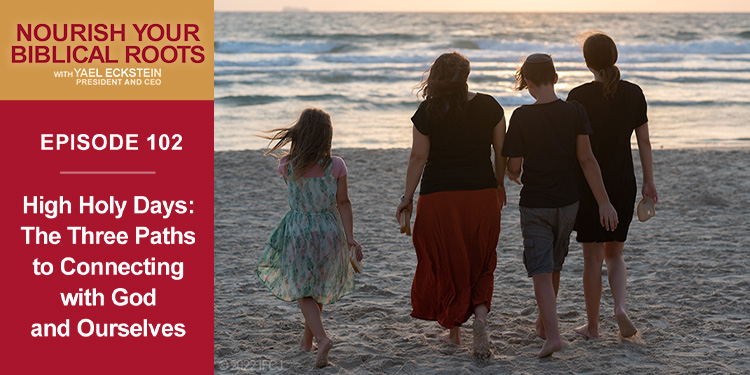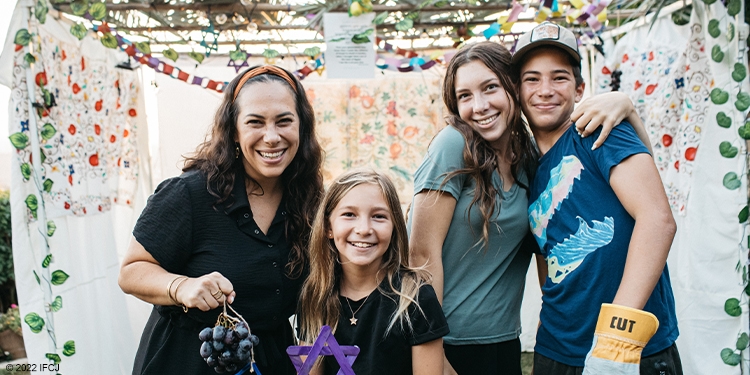The Three Paths to Connecting with God and Ourselves

Host Yael Eckstein begins a six-part series examining the spiritual journey Jews around the world take each year during the High Holy Days and what lessons these holy observances can teach Christians and Jews about connecting with God and ourselves.
Episode Notes:
Right now, Jews around the world are preparing for the holiest time on the Jewish calendar, known as the High Holy Days. This holy season begins with Rosh Hashanah, the Jewish New Year, and concludes ten days later with Yom Kippur, the Day of Atonement. While these are the two main holy days, the High Holiday season also includes Sukkot, the Feast of Tabernacles, Shemini Atzeret, the “Eighth Day of Assembly,” and Simchat Torah, literally “rejoicing in the Torah”
Each year, Jews begin this spiritual journey in the month of Elul, a time of intense reflection, soul-searching, known in Hebrew cheshbon hanefesh, literally “an accounting of the soul.” As Yael says, “This is a time to ask ourselves what bad habits are holding me back from who I want to be? What change do I need to make in my life? Spiritually, it is a time to lay the groundwork for real and lasting change in the year to come.”
Yael explains that they are guided along this journey by the three paths, or pillars, of the High Holy Days — repentance, prayer, and charity.
Repentance, teshuvah in Hebrew, is about taking a moment to examine our hearts and see the places in our lives where God needs to be invited back in. Through teshuvah, whose root word is shuv, meaning “return,” Jews focus on returning to God and to their true selves by realigning their intentions and aspirations with God’s will.
The second path is prayer — the foundation of our relationship with God. Through prayer, we develop our love for God and experience His love for us. As with any relationship, in order to keep it fresh and deepen that connection, we need to make it a priority.
“When we strengthen our love for God through our prayers, we develop effective skills to be open to blessings so that His love pours down on us,” Yael says. “Then, we are ready to share His love with others.”
Which brings us to the final path, charity. In Hebrew, the word for charity is tzedakah. It is comprised of two Hebrew words: tzedek (justice or righteousness), and kah, a name of God. Together, these words describe charity as “the justice of God,” and as “righteous giving.” Charity is not just a good deed we do; it is our righteous obligation and duty in serving God.
“This is the manifestation of God’s love for us and our love for ourselves,” says Yael. ”When we fill up our cup, we can then fill the cups of others. This fountain has no end, and His love can keep flowing through us to others through tzedakah.”
This completes the three paths on spiritual journey through Elul — a path of love —returning to ourselves and to God through repentance, strengthening our love for God through prayer, and finally, sharing ourselves and our blessings with others through charity.
Learn more about this spiritual journey at The Fellowship’s Learning Center.


